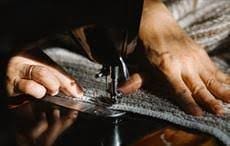Export-related issues like anti-dumping duty on viscose fibre, extension of the interest equalisation scheme to large corporations, inverted duty issue in refund of goods and services tax (GST), free trade agreements (FTAs) with the European Union (EU) and the United States, trade agreements with Canada and Australia were some of the topics discussed with commerce secretary Anup Wadhawan by garment industry bodies recently.
They also discussed the pending announcement of the Remission of Duties or Taxes on Export Product (RoDTEP) notification, non-receipt of Rebate on State Levies (ROSL) fund before March 7, 2019, making turnover the basis for categorizing as a micro, small and medium enterprise (MSME), the parliament bill on contract labour and the availability of ad-hoc incentive only up to December 31, 2019.
The trade associations were Tiruppur Exporters’ Association, the Federation of Indian Exporters Associations (FIEO), the Apparel Export Promotion Council (AEPC) and the Indian Texpreneurs Federation (ITF), according to a TEA press release.
There are clauses in the Foreign Trade Policy handbook of procedures because of which job working units like knitting, dyeing, bleaching, calendaring, compacting, printing and embroidery—the backbone of Tirupur knitwear export cluster—are facing a huge problem to fulfill export obligation within the prescribed block period and as a result, MSME units are showing less interest in opting for modernisation of machinery, TEA said. The current procedure favour and promote large corporate units, it alleged.
The organisations requested extending the exemption from payment of integrated tax and compensation cess under the Advance Authorisation Scheme by two more years till March 31, 2022, as the industry has not witnessed significant growth in exports in the last two years.
Standard input output norms (SION) are not available for knitwear garment items like pullovers, jackets and trousers, and when the application is made for fixing norms for these items, the committee usually takes a longer period, almost five to six months to fix the norms. This has become a difficulty for exporting units, the TEA press release said.
As raw materials import from China for manufacturing of dyes and chemicals has stopped due to the novel coronavirus outbreak, all domestic manufacturers of dyes and chemicals have increased the cost by 30 per cent and even after the increase, the products are not available. Another 25 per cent rise in the cost of dyes and chemicals is anticipated.

